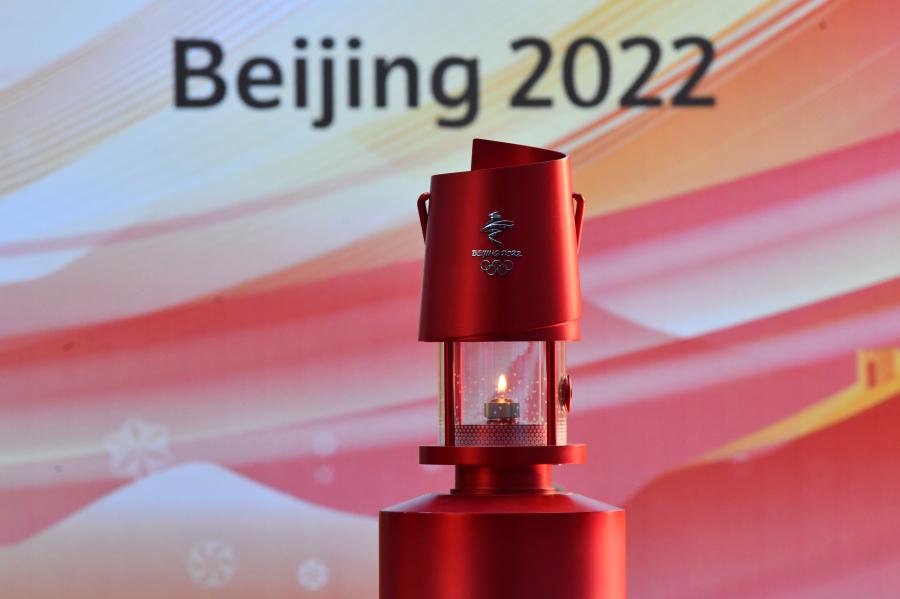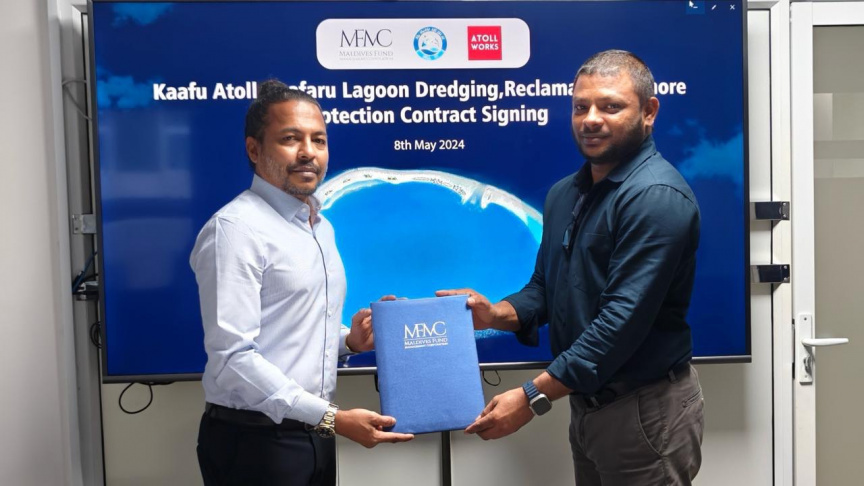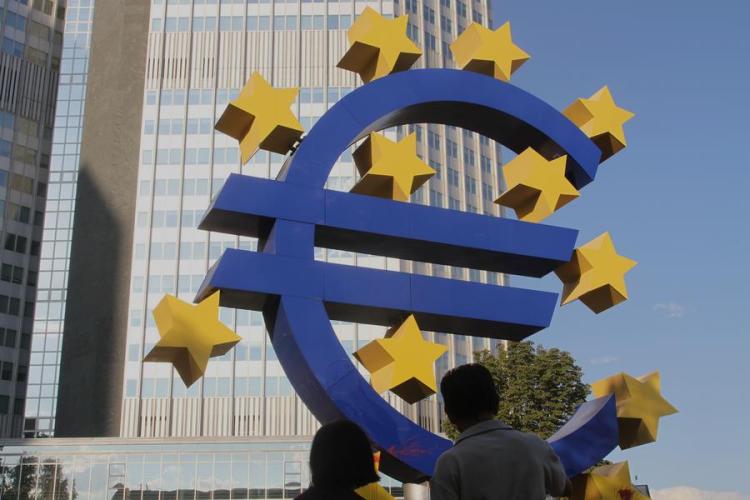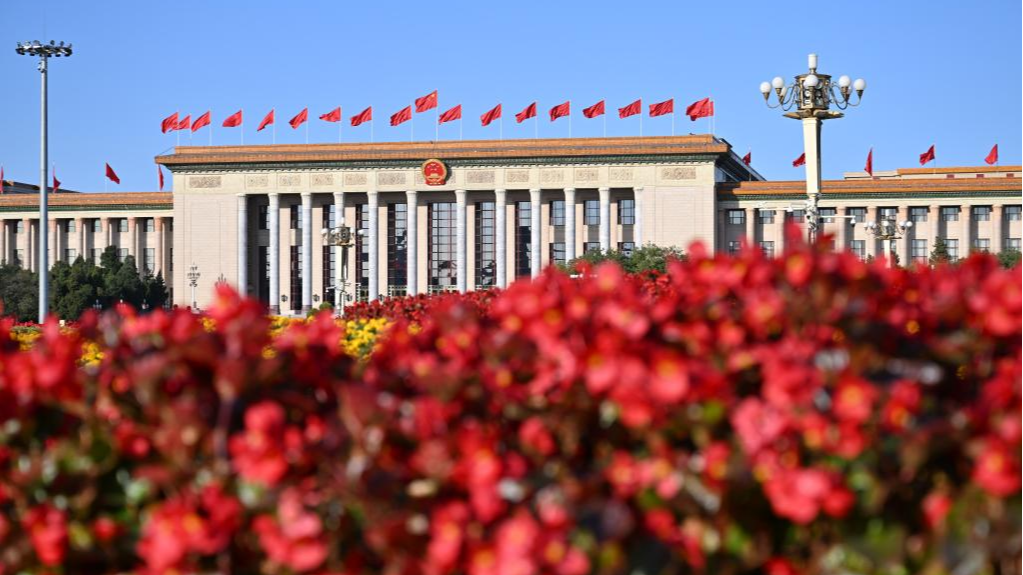Despite the Omicron variant of the COVID-19 virus and a small number of countries’ moves to politicize the Beijing 2022 Winter Olympics, China has vowed to present the world with streamlined, safe and splendid Games, which will open on Feb 4 in the Chinese capital.
Thanks to its institutional strength in mobilizing all available resources, China has prepared well to welcome athletes from around the world to enjoy the sports event, whose official motto is “Together for a Shared Future”.
President Xi Jinping told the world in his New Year address on Dec 31 that “China is ready” for great Olympics. “We will spare no efforts to present great Games to the world,” he said.
The event will make the Chinese capital the first city in the world to host both summer and winter Olympic Games.
It comes at an unusual time, with the COVID-19 pandemic still raging globally, and this requires the nation’s additional efforts in epidemic prevention and control so that athletes will be as safe as possible. For the sake of safety, China has decided to forgo a big ceremony and attendance from international spectators.
Xi, a keen sports fan, was personally involved in the country’s 2015 bid for the Beijing 2022 Winter Olympics. During the preparation process, he visited the venues of the Beijing Games several times in order for the event to be held successfully.
Christophe Dubi, Olympic Games executive director of the International Olympic Committee, said China’s preparations for the upcoming Games, particularly venue construction and COVID-19 prevention and control measures, should be given high marks in all aspects.
In a recent interview with China Global Television Network, Dubi said that as the work for epidemic prevention and control has gotten more complicated during the winter, he is grateful for China’s efforts to host the event. Many admirable achievements have been made in preparations for the Games, he added.
The official also said he is eager to begin his trip to Beijing in a couple of weeks, and he believes the Games will present a grand event with Chinese characteristics to the world.
Richard Pound, a senior IOC member and former IOC vice-president, also praised China’s preparatory work.
Pound said that the preparations for the Beijing Winter Olympic Games have been smooth and orderly, and the excellent organization and management will make the Games a success.
China has the best capacity to respond to COVID-19, so the country can ensure the Winter Olympics will be held safely with a live audience, he said, adding that his experience convinced him, from a professional point of view, that the Beijing Winter Olympics will be a spectacular success despite the challenges.
The Games will also take place amid a handful of countries’ attempts to politicize the sports activities with the excuse of so-called “human rights violations” in the Xinjiang Uygur autonomous region. These countries, including the United States, Canada, the United Kingdom and Australia, said they will not send officials or government delegations to participate in the Beijing Games, as a gesture of “boycotting” the Games.
The Foreign Ministry has responded to the so-called “boycott”, saying such allegations are a self-directed “political farce” and a serious violation of the principle of political neutrality of sports enshrined in the Olympic Charter.
Abu Naser Al Farabi, a Dhaka, Bangladesh-based columnist and analyst focusing on international politics, especially Asian affairs, said in a recent opinion piece that there is a long-played geopolitical gambit on the part of the West-politicizing global platforms or inflating domestic issues to score geopolitical points.
“But why has the US, along with its allies, so desperately pushed China’s so-called ‘human rights abuse’ and ‘genocide’ in Xinjiang into the international discourse while showing a brazen disregard for its own egregious human rights violations?” he asked.
The US and its allies are apparently more willing to use the “Xinjiang card” as another weapon to undermine China’s rise, he added.
Noting that grand sports events like the Olympics are supposed to be grand confluences of global political stakeholders, with a chance to narrow their gaps and contribute to “global good”, he said that if the US sticks to its diplomatic boycott and rallies support for the decision, it will end up polarizing and fragmenting the world.
Observers said that against a raging pandemic, stagnating economy and rising geopolitical tensions, it would be more rewarding to make the Beijing Winter Olympics a platform for rebuilding trust and global solidarity.
Many countries and international organizations have expressed their support for Beijing to hold a successful Winter Olympics. Leaders including Russian President Vladimir Putin and UN Secretary-General Antonio Guterres have confirmed that they will attend the opening ceremony of the Beijing Games.
China has made great efforts to promote peace, harmony and friendship through the Beijing Winter Olympics, said Ban Ki-moon, former secretary-general of the United Nations.
Ban, who is also chairman of the IOC Ethics Commission, said he believes that with the leadership of the Chinese government, the Beijing Winter Olympics are bound to spread friendship, harmony and mutual respect.
By CAO DESHENG | China Daily

 News6 days ago
News6 days ago
 News7 days ago
News7 days ago
 Tech7 days ago
Tech7 days ago
 Business6 days ago
Business6 days ago
 News3 days ago
News3 days ago
 News3 days ago
News3 days ago
 World3 days ago
World3 days ago
 Travel & Culture4 days ago
Travel & Culture4 days ago





















